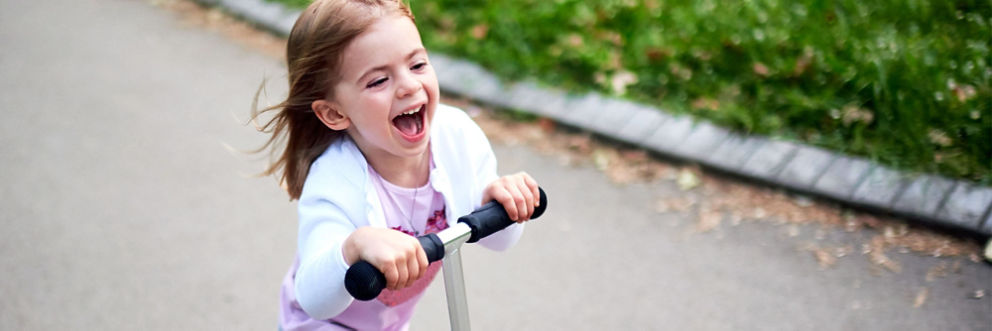Pediatric asthma
Expert treatment for pediatric asthma
According to the Centers for Disease Control and Prevention, about 8% of children under the age of 18 have asthma. While asthma in children is the same condition as
Asthma symptoms can be triggered by exercise,
At HealthPartners and Park Nicollet, we help you manage your child’s asthma so they can get back to doing what they love. Our pediatricians and specialists work together to provide comprehensive care every step of the way.
Asthma symptoms in children
Asthma symptoms may differ from child to child. For some, the main symptom is a persistent (constant) cough. Other children may experience one or more of the following symptoms:
- Wheezing
- Tightness of the chest
- Shortness of breath
- Trouble sleeping through the night without symptoms
- Trouble exercising without symptoms
If your child is experiencing any of these symptoms, it might be a good idea to schedule an appointment with one of our
Diagnosing asthma in children
Diagnosing childhood asthma is similar to diagnosing asthma in adults. Common tests used to diagnose asthma include:
Physical exam
We’ll listen to your child’s breathing for any obstructions or buildup. We might also feel the muscles around their lungs and throat and perform breathing tests.
Spirometry test
A spirometer is a sensor your child will blow into that measures the amount of air their lungs can hold and how quickly they can inhale and exhale. This is the most common test for asthma.
Treating asthma in children
Asthma is commonly managed with medication and making a pediatric asthma treatment plan with your child’s doctor to manage asthma triggers and symptoms.
Asthma medications
Various pediatric asthma medications are available to prevent and control asthma symptoms. We’ll prescribe asthma medication to meet your child’s unique needs. Some children with asthma take medication daily. Others take medication only with a flare-up or before or after physical activity.
Types of medications
Asthma medications come in different forms, including inhalers, nebulizer solutions and tablets. There are two types of asthma medications:
Quick-relief medications. These medications, also called rescue or short-acting medications, provide quick relief of asthma symptoms (coughing, wheezing, shortness of breath, chest tightness). They help relax muscles around your child’s airways.
Long-term medications. These medications, also called control or long-acting medications, prevent or reduce inflammation and excess mucus in your child’s airways. They also can decrease twitchiness in the airway muscles. Several types of long-term control asthma medications are available. Some long-term medications are taken regularly, up to two times a day, even when your child is not having asthma symptoms.
Management of asthma in children
Our doctors will work with you to develop a plan for managing your child’s medications, triggers and symptoms. Avoiding triggers is the most effective way to prevent asthma flare-ups. Asthma management plans use a color-coded zone system to quickly understand how well controlled your child’s asthma is and any steps to stop symptoms from worsening. By following the asthma management plan, you can learn to manage asthma symptoms and keep your child doing the things they enjoy.
